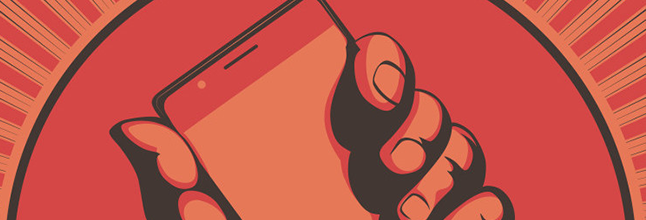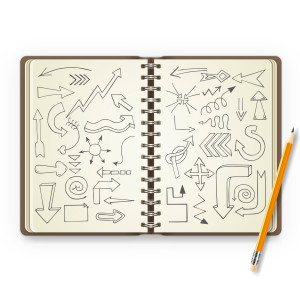This is a translation by Snackson of a post originally written in Spanish by Jordi Pizarro, who published it at designtraining.cat.
The logical evolution of learning processes involves, inevitably, technology and it’s like this no matter what, it involves finding methodological solutions related to the internet.
The “traditional” system of online training shows symptoms of fatigue. Since the advent of Internet, content arranged with the same conceptual model keeps being “served”. It’s true that the tools we use for the production of content have evolved. But the educational perspective keeps being the same, an attempt to transfer to the net what we’ve always done in the classroom.
It’s not easy to change people’s mentality, and I put myself at the top of the list. All those who we dedicate to e-learning have evolved, and all, or at least that’s what I want to think, we try to bring new and creative methodological processes; interactive videos, decision trees, storytelling adapted to the online system, gamification (this idea was already mentioned by Pestalozzi in 1880)… But you always end up thinking that something’s missing… that the logical evolution of learning based on the current technology must give a step forward, even though it’s a risky step.
It’s clear that adapting to the speed of technological innovation is highly complicated, but we must get close to it. And getting close to it if we talk about learning, even more if it’s learning aimed at the employees of large organizations, involves, no matter what, with no excuse, progressing bearing in mind the trends and interaction of human beings with the technology. That is to say, it involves mobile phones.
And involving mobile phones doesn’t mean to carry out multi-device courses, which may be possible and which are indeed necessary, but it means to go much further than that. It means thinking about how we interact with it, and how should we use them in ongoing learning.
I think that best thing to do is not to abandon current methodologies, which certainly are successful (I’ve been 15 years in e-learning and I think we’re not doing badly), but to create a new way of learning which may be the nexus between all the methodologies and which joins us in the logical evolution of learning.
And that is achieved, as I already wrote some days ago, by putting a lot of effort in the analysis of the teaching interaction. The content is the key to this evolution, and if we’re not able to adjust it to the mobile usability, we won’t be able to offer the solutions we deserve as constantly learning beings. Without a content previously thought and designed to learn with and from this tool, we will keep making do with what we had always had,which is good, really good, but maybe not the ideal.
Our commitment is to squeeze our mind to create a methodology which becomes something natural, something so simple as to send a WhatsApp, something as logical as to divide learning into small learning portions that allow us to learn at any moment and anywhere (where we can get signal, of course).
The logical evolution would be to commit ourselves to complement the current model giving a step forward. This means, trusting people and the use they make of something as indispensable as the mobile phone is, without being intrusive. It’s not about creating 3D video games with virtual reality, no, that’s not the point. It’s about being logical in our approach to our habits and knowing how to adapt learning to the way we live.
To give an example, yesterday, a friend told me: “Jordi, what I would like is that in the morning, when I get in the car, it says: Hi, today you’re going to learn something more about… And that when I reach a speed inferior to 30km/h my car helps me to learn something, because when I arrive work, I find it difficult to find 1 hour a day to carry out training”. That will come up in the future, but before arriving there, we have to shape it at present. And present, very soon, will involve microcontents… and soon, will have a name
If you want to know that name, please be sure to come back to our blog… in a short time, we will be happy to disclose it to you.




